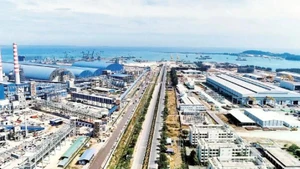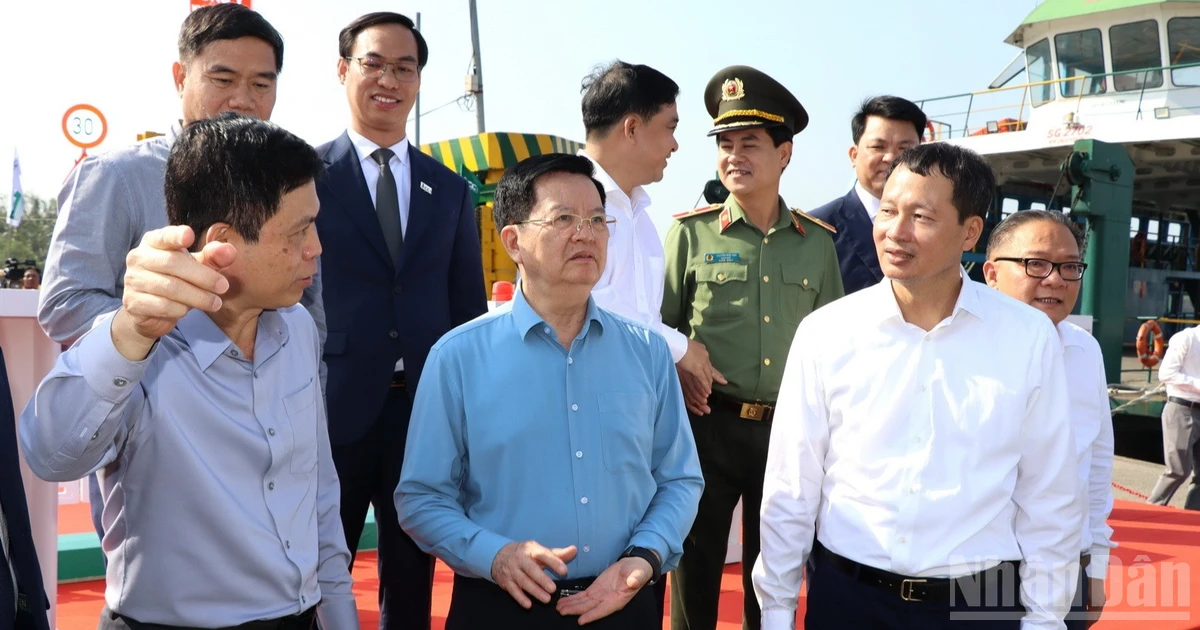Objectives of the programme
The programme aims to institutionalise and fully implement the principles, goals, tasks, and solutions outlined in Resolution No. 70-NQ/TW of the Politburo on ensuring national energy security through 2030, with a vision to 2045.
It seeks to ensure a solid foundation for national energy security; provide sufficient, stable, and high-quality energy with lower emissions to support socio-economic development; safeguard national defence and security; improve people’s living standards; and protect the ecological environment.
By 2030, several key targets will be achieved: the total primary energy supply is expected to reach around 150–170 million tonnes of oil equivalent; total final energy consumption around 120–130 million tonnes of oil equivalent; the rate of energy savings in total final energy consumption compared to the business-as-usual scenario around 8–10%; and the reduction of greenhouse gas emissions from energy activities compared to the business-as-usual scenario will be about 15–35%.
The programme assigns concrete tasks for ministries, sectors, and local authorities to develop and implement detailed action plans; monitor, supervise, and evaluate the implementation of Resolution No. 70-NQ/TW; improve the legal framework to promote national energy development in the line with the Resolution; strengthen oversight of strategies, master plans, and policies for national energy development; and ensure national energy security meeting the requirements of socio-economic growth in the new context.
Key directions for implementation
To achieve the objectives of Resolution No. 70-NQ/TW, alongside routine duties, the government requests ministries, ministerial-level agencies, government-attached bodies, provincial and municipal People’s Committees, and enterprises in the energy sector to:
Strengthen the leadership of the Party, the management of the state, and the participation of the entire political system and the public in ensuring energy security;
Improve institutions and policies to transform them into competitive advantages and a strong foundation for energy development;
Expand energy supply and infrastructure to ensure stable energy security and meet growth demands;
Promote energy saving, environmental protection, and climate change response, while flexibly implementing international commitments on emission reduction;
Establish governance and risk-response measures;
Mobilise all social resources and strongly encourage private-sector participation in energy development;
Foster breakthroughs in science, technology, innovation, digital transformation, and human-resource training in the energy sector;
Strengthen international cooperation to promote rapid and sustainable energy-sector development and ensure national energy security.
Developing energy supply and infrastructure
To develop energy supply sources and infrastructure, firmly ensure energy security, and meet growth requirements, the government has requested relevant authorities to formulate specific scenarios and implementation roadmaps so that energy supply aligns with economic growth needs through 2030, with a vision to 2045;
Energy supply must be diversified, with mechanisms prioritising domestic energy development to reduce import dependence and promote efficient exploitation and utilisation of domestic energy sources.
The government also calls for the establishment and development of a national energy industrial centre integrating gas, liquefied gas, electricity, refining, petrochemicals, and renewable energy in localities with favourable conditions, in synchrony with policies on exploitation, off-take commitments, and domestic natural gas pricing.
According to the Resolution, relevant functional bodies are required to address bottlenecks and accelerate the progress of key energy projects; enhance strategic energy reserves and storage; develop the energy industry and energy-equipment manufacturing; and build a modern, intelligent, sustainable energy infrastructure with regional and international connectivity.
The Resolution further stipulates the need for preferential policies to train high-quality human resources and attract foreign experts and overseas Vietnamese to work in nuclear, renewable, and new energy sectors.
















